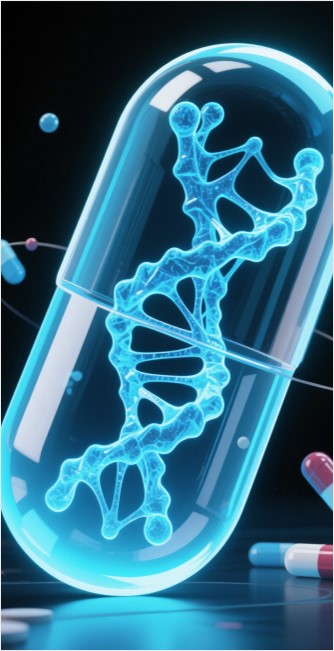Anal Squamous Cell Carcinoma (ASCC) is an uncommon type of cancer which originates from the anal canal. Protheragen's diagnostics and therapeutics development services for ASCC are characterized by a commitment to scientific rigor, innovation, and efficiency.
Overview of Anal Squamous Cell Carcinoma (ASCC)
Anal squamous cell carcinoma (ASCC) is rare, but it increasingly affects the anal canal. ASCC is mostly linked with human papillomavirus infections, most commonly with HPV type 16, which accounts for more than 90% of the cases. The prevalence of ASCC is escalating worldwide, bringing a considerable burden of disease with morbidity and mortality. The primary therapeutic approach for ASCC has been chemoradiotherapy with 5-fluorouracil (5-FU) and mitomycin C for localized disease; however, the prognosis is poor for advanced and metastatic disease.

Fig.1 Potential therapeutic targets for ASCC. (Carr R. M.,
et al., 2021)
Pathogenesis of Anal Squamous Cell Carcinoma (ASCC)
The pathogenesis of ASCC (anogenital squamous cell carcinoma) is profoundly associated with the HPV (human papillomavirus) infection due to its oncogenic transformation facilitated by the expression of viral oncoproteins E6 and E7. These proteins also render tumor suppression genes like p53 and retinoblastoma (Rb) non-functional, resulting in excessive cell division. Furthermore, ASCC is marked by some other genetic changes like the mutations of the PI3K/AKT/mTOR pathway which is known to mediate cell survival and proliferation. Other possible contributing drivers are mutations on KRAS and NRAS, and on the DNA repair genes ATM, BRCA1, and BRCA2. The alterations of these molecular mechanisms have significant impact in the development and progression of ASCC which eventually makes them an attractive option for therapeutic target.
Therapeutics of Anal Squamous Cell Carcinoma (ASCC)
- Chemotherapy: The foundation of therapy for localized ASCC still includes traditional chemotherapy regimens like 5-FU and mitomycin C. Nevertheless, in more advanced disease, the novel therapeutic of modified docetaxel, cisplatin, and 5-fluorouracil (mDCF) has demonstrated even better response rates and survival outcomes.
- Immunotherapy: Checkpoint inhibitors like pembrolizumab and nivolumab have shown benefits even in advanced ASCC cases who have not responded to chemotherapy. These drugs act on the PD-1/PD-L1 axis, which improves the immune response of the body towards cancers.
- Targeted Therapies: The objective of targeted therapies is to take advantage of certain molecular changes in ASCC. An example would be the research on inhibitors of the PI3K/AKT/mTOR pathway because mutations in this pathway are so common.
- Therapeutic Vaccines: Therapeutic vaccines targeting HPV oncoproteins (e.g., E6 and E7) or telomerase are being developed to stimulate an immune response against cancer cells.
Table 2. Clinical trials in locally advanced disease. (Spehner L., et al., 2021)
| Trial |
Stage |
RT Dose |
Induction CT |
Concomitant Therapeutics |
Results |
Phase |
| RTOG 98-11 |
≥T2 |
45–59 Gy |
CDDP + 5FU |
CDDP + 5FU or MMC + 5FU |
Negative |
III |
| ACCORD 03 |
T ≥ 4 cm or N+ |
60 Gy vs. 70 Gy |
CDDP + 5FU |
CDDP + 5FU |
Negative |
III |
| ECOG 3205 |
65% stage III |
45–54 Gy |
CDDP + 5FU |
CDDP + 5FU + cetuximab |
Negative |
II |
| ACCORD 16 |
T ≥ 3 cm or N+ |
65 Gy |
- |
CDDP + 5FU + cetuximab |
Stop for toxicity |
II |
| FFCD 0904 |
T ≥ 2 cm or N+ |
65 Gy |
- |
MMC + 5FU + panitumumab |
Negative |
II |
Disclaimer: Protheragen focuses on providing preclinical research services. This table is for information exchange purposes only. This table is not a treatment plan recommendation. For guidance on treatment options, please visit a regular hospital.
Our Services
Protheragen offers comprehensive services for the development of diagnostics and therapeutics for ASCC. These services encompass preclinical research, including the identification and validation of drug targets, drug discovery, and preclinical testing. Protheragen supports the development of novel therapeutic agents, such as immunotherapies, chemotherapeutic drugs, and targeted therapies, along with the development of diagnostic tools, including biomarker identification and assay development.
Diagnostics Development
- Karyotype Analysis Service
- Omics Analysis Service
- Biomarker Development Service
- Artificial Intelligence Service
Therapeutic Development
- Anticancer Peptide
- Gene Therapy
- Immunotherapy
- Monoclonal Antibody
- Phytotherapy
- Small Molecule Drug
- Therapeutic Cancer Vaccine
Disease Models
- GEMM Expressing HPV Oncogenes (E6 and E7) in Stratified Squamous Epithelia
- Pik3ca Activation Mutation Models
- HPV-Independent Models
Protheragen's competitive advantage lies in our deep understanding of the molecular pathobiology of ASCC, coupled with our extensive experience in preclinical research and drug development. Our team of experts brings together diverse backgrounds and expertise, enabling us to tackle complex scientific challenges with creativity and precision. By collaborating closely with our clients, we are able to tailor our services to meet their specific needs, ensuring that their research objectives are achieved efficiently and effectively. If you are interested in our services, please feel free to contact us.
References
- Carr, Ryan M., Zhaohui Jin, and Joleen Hubbard. "Research on anal squamous cell carcinoma: systemic therapy strategies for anal cancer." Cancers 13.9 (2021): 2180.
- Spehner, Laurie, et al. "Present and future research on anal squamous cell carcinoma." Cancers 13.15 (2021): 3895.
All of our services and products are intended for preclinical research use only and cannot be used to diagnose, treat or manage patients.



 Fig.1 Potential therapeutic targets for ASCC. (Carr R. M., et al., 2021)
Fig.1 Potential therapeutic targets for ASCC. (Carr R. M., et al., 2021)



